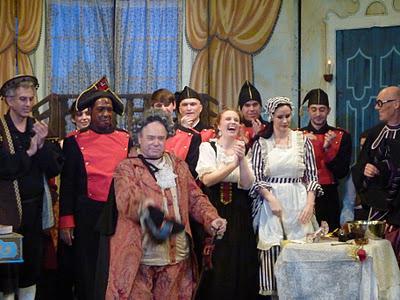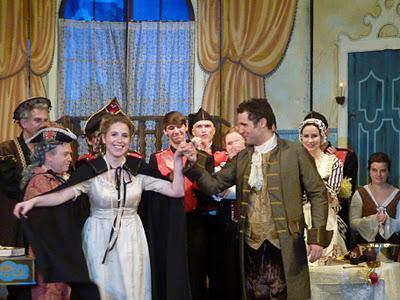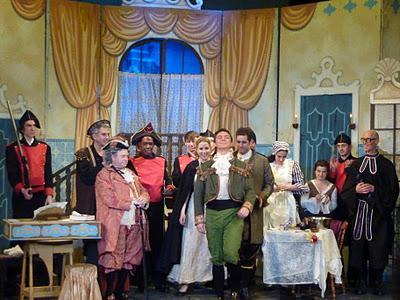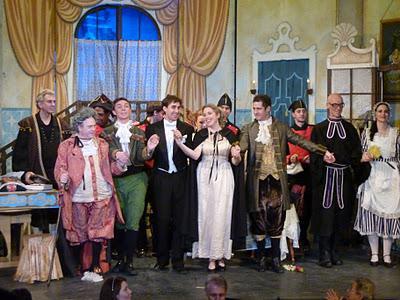After
Mozart and
Mercadante earlier this autumn, Amore Opera's "Fall Figaro Fest" is concluding with the beginning of the story, and Rossini's indefatigable factotum. The staging all but winked at the audience, treating the fourth wall like a curtain to be pulled aside to say: isn't this all a glorious joke? It is, of course. The orchestra played energetically for Richard Owen, but sounded unfocused and ragged at points (an opening night liability, perhaps.) The humidity was a problem for the string players, but they battled it valiantly, retuning at the interval. One aspect of the performance which struck me as peculiar was that it was performed in Italian and English, with recitative in English and the rest in Italian; the easy flow of Rossini's music resulted in a number of non sequiturs in bilingual conversations. (Apparently this performance tradition endures from Amato Opera.) The supertitles broke partway through, and my neighbors seemed to be grateful for the English, which had a "cask of Amontillado" joke but left out the cheese and macaroni. Still,
Barbiere's conspiratorial ensembles, conspicuously exchanged letters, and silly disguises don't strike me as particularly dependent on word-by-word comprehension. I have special respect for the singers dealing with the mental gymnastics of using two languages in rapid alternation. Amore Opera's mixture of veteran and up-and-coming singers gave broad, engaging performances, and to judge by the reactions of those around me in the audience, good times were had by all.
In smaller roles, Sanford Schimel made a fine Fiorello, and Pavlina Horakova brought an expressive, distinctive mezzo to Berta. Alan Smulen was a slightly dry but solid Bartolo, aptly fussy and unafraid of making the deluded doctor openly ridiculous.
Jörg Schnass sang Don Basilio with fine diction and vivid theatricality; "La calunnia" was given with appropriately oily glee. The Rosina of
Elizabeth Treat was pert without being precious, using her bright, agile soprano with confident flair. She had fine chemistry both with her ardent suitor and with the charming Figaro. Andrew Whitfield sang the role of Almaviva with vivid engagement (giving just a hint in the first act of the wandering eye and weak will which lead to such grief later on... but letting the audience forget that in the charm of the rest of the performance.) Whitfield has a warm, pleasant timbre, and he sounded freer as the evening went on, interacting well with the other singers. Scott Lindroth's Figaro was often covered in the outdoor scenes with the Count, but this was rectified subsequently. Lindroth was appropriately cheeky, conveying sly self-satisfaction through well-shaped phrases. It all ended with half the population of Seville in Rosina's room, celebrating successful conspiracies and joyful prospects. The opera runs through January 1.
Curtain call photos:
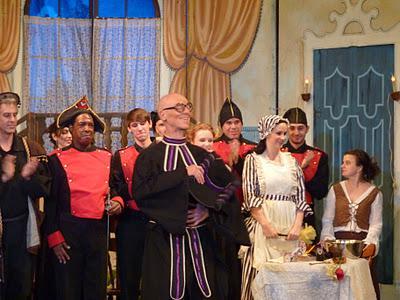
Schnass, Don Basilio
Smulen, Don Bartolo
Treat and Whitfield, Rosina and Lindoro/Almaviva
Lindroth as Figaro
Company and conductor

